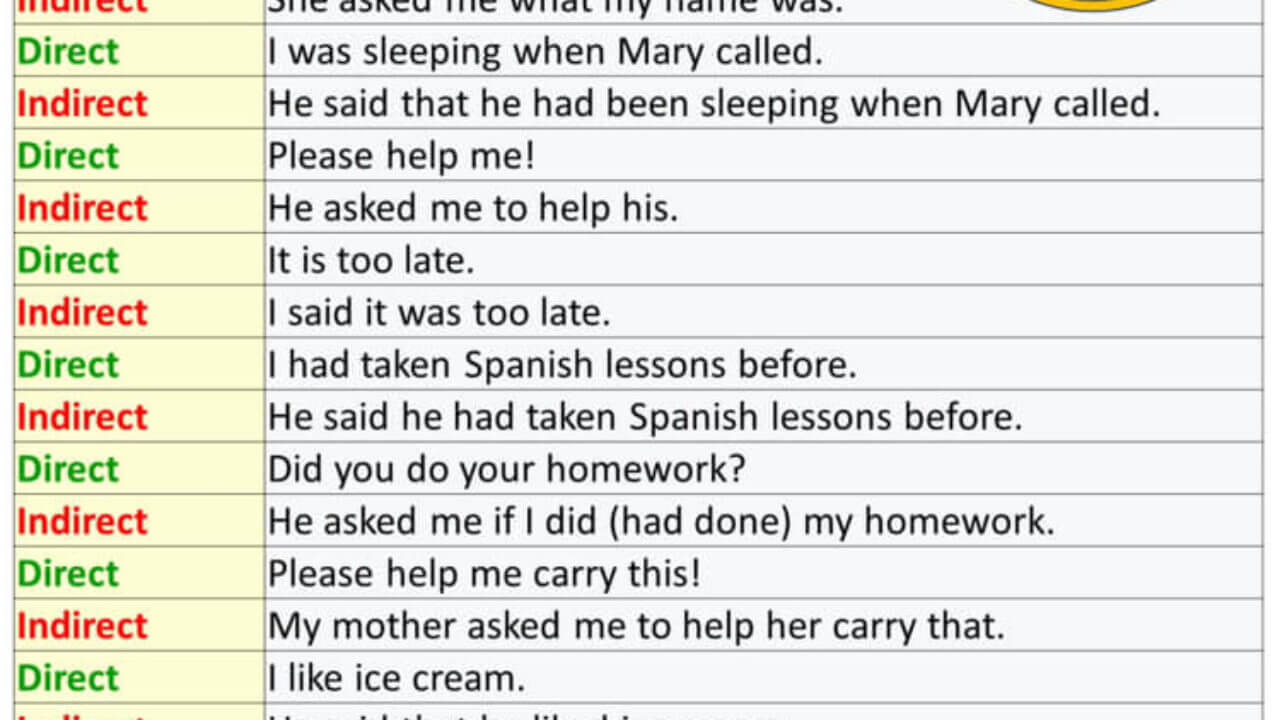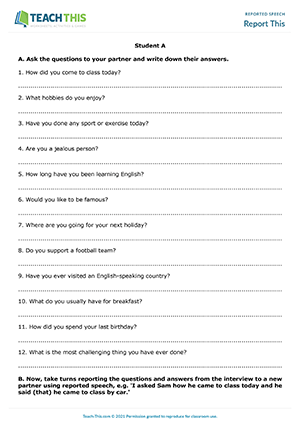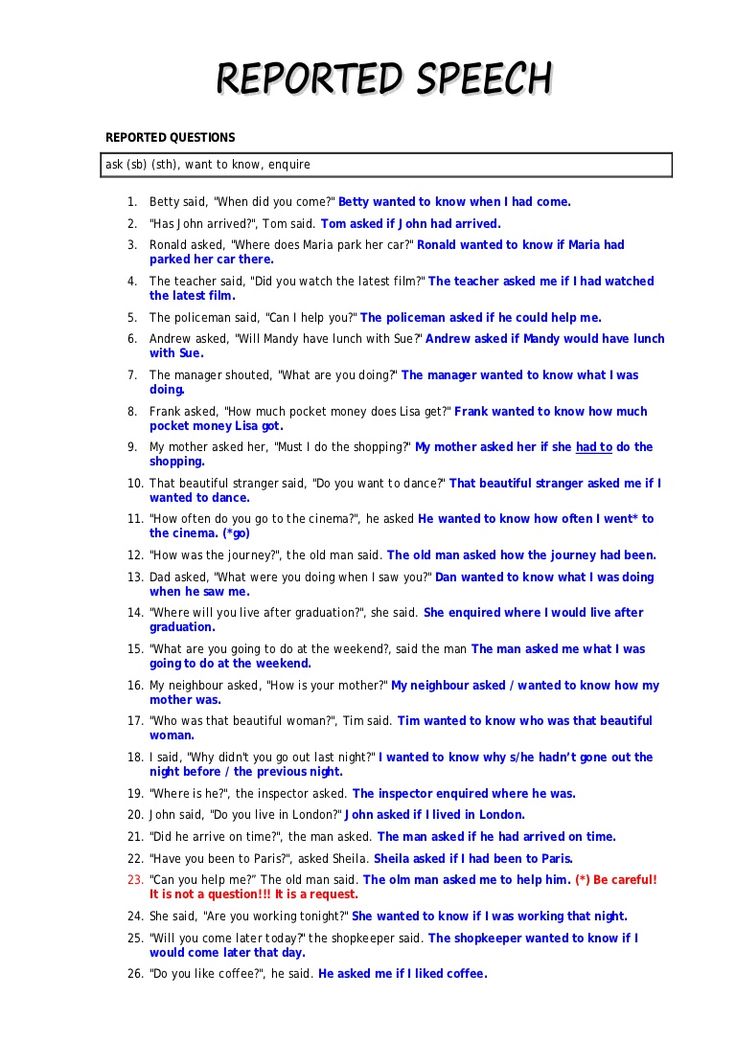

Occasionally, we don't need to change the present tense into the past if the information in direct speech is still true (but this is only for things which are general facts, and even then usually we like to change the tense): She said (that) she must study at the weekend OR She said she had to study at the weekend She said (that) she should call her mother She said (that) she could swim when she was four. She said (that) she could speak perfect English. She said (that) she had taken English lessons before. She said (that) she had been walking along the street. She said (that) she was living in London.

(As I'm sure you know, often, we can choose if we want to use 'that' or not in English. We also may need to change words like 'my' and 'your'. We don't need to change the tense, though probably we do need to change the 'person' from 'I' to 'she', for example. Reported speech: She says (that) she likes ice cream.We just put 'she says' and then the sentence: ( Click here for more about using 'say' and 'tell'.) If this verb is in the present tense, it's easy. We use a 'reporting verb' like 'say' or 'tell'. Later, maybe we want to tell someone else what the first person said. When do we use reported speech? Sometimes someone says a sentence, for example "I'm going to the cinema tonight". Click here to download this explanation in PDF. His father then asked (e) _ to which the son replied in affirmative and said that (f) _.Click here for a list of reported speech exercises. Son: Radha, she is a very helpful person.

Subham respectfully replied that it has happened in the local market. Subham reported to the inspector (a) …………. in the class.ī) he had seen them the day before in hisĭ) he had thought that she had been talking about the three idiots. Reena asked Rakesh (a) …………… ‘Three Idiots’. Rakesh: I thought that you were talking about the three idiots in the class. Rakesh: I saw them yesterday in my class. Read the following conversation and complete the passage that follows.



 0 kommentar(er)
0 kommentar(er)
